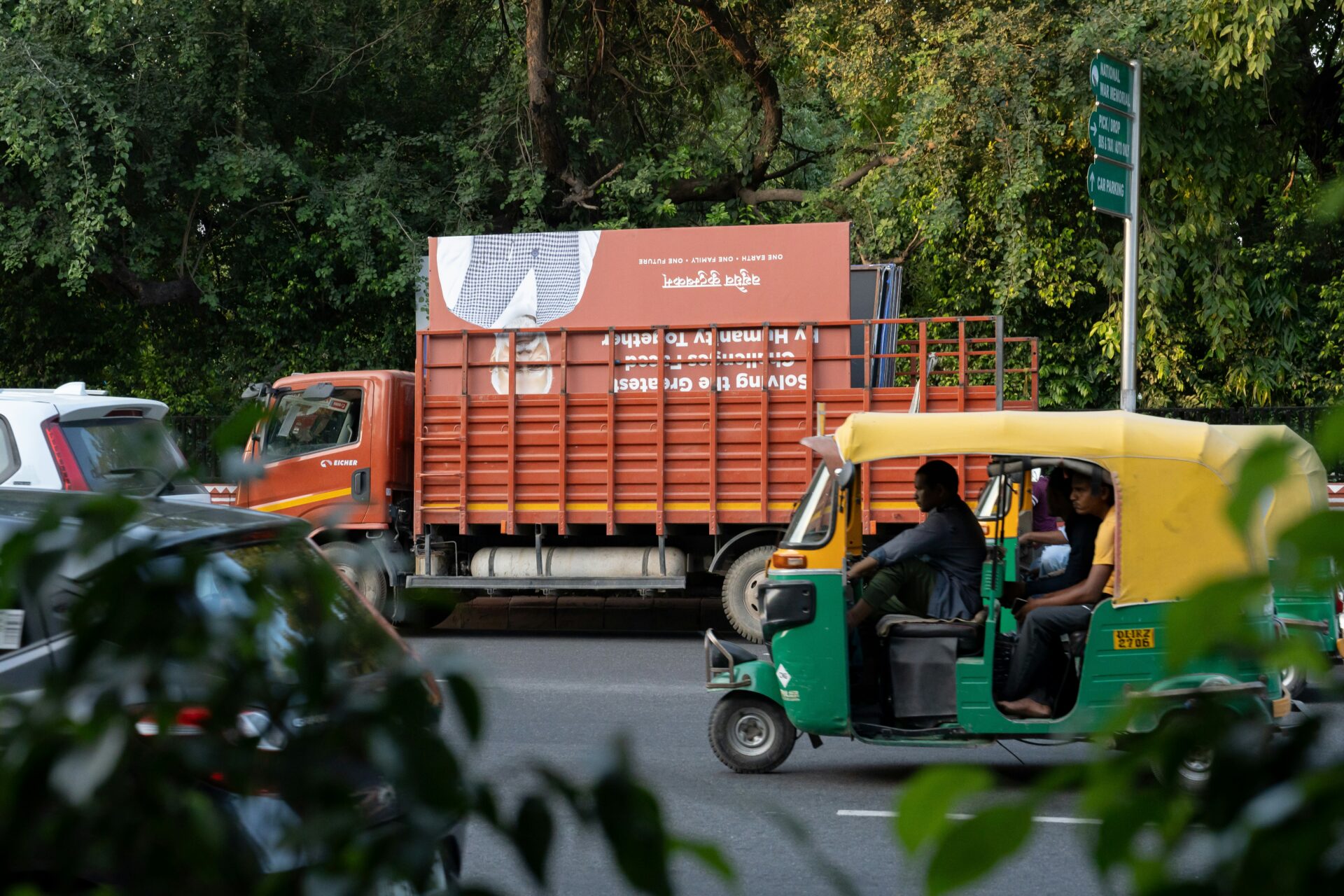In the world’s largest elections, taking place in phases between April 19 and June 1, nearly a billion voters will cast their ballots for India’s next leaders. As the vote gets underway, Bollywood, the prominent face of Indian cinema, is witnessing a surge in films with themes that express overt support for incumbent Prime Minister Narenda Modi. These films, experts say, appear to be part of a strategic effort to drum up support for Modi and his Hindu nationalist ruling party around the election period.
These movies present polarizing narratives. Many include Islamophobic themes and anti-leftist sentiments and frequently deploy historical revisionism, distorting events and personalities to align with Hindu nationalist narratives.
“I would argue that propaganda films are now a genre in India,” said Tanul Thakur, a prominent film critic. Thakur explained that the new trend in the film industry is a “codification of hate speech into the cinema,” adding: “These are big-budget films, released in major cinemas. You have an ecosystem with a group of filmmakers who do these films.”
Rewriting History
At least a dozen such “propaganda films” have either recently premiered or will soon hit the screens. For instance, an upcoming film called “The Sabarmati Report” purports to unveil the supposed truth behind the 2002 Godhra train burning incident. The tragic incident, in which close to 60 Hindu pilgrims lost their lives, served as the trigger for widespread anti-Muslim violence in Gujarat. Orchestrated by Hindu right-wing factions, this violence resulted in the deaths of more than 1,000 individuals.
The film is set to be released in May, amid the elections. The trailer suggests the film exposes a cover-up, challenging the report by a judicial Committee, appointed by the Congress-led government, that found that the fire was “accidental.”
At the time, Modi’s Bharatiya Janata Party (BJP) vehemently opposed the findings of the committee. Then chief minister of Gujarat, Modi himself insisted the fire was an “organized terrorist attack.”
Bankrolled by BJP
The majority of these films are either helmed or financed by individuals associated with the BJP, with notable ties extending to the Rashtriya Swayamsevak Sangh (RSS), a paramilitary Hindu right-wing organization considered the ideological backbone of the BJP.
BJP leaders, including Prime Minister Modi himself, have openly endorsed and supported these films.
For instance, in February, Modi praised “Article 370,” a recently released film that lauded his government’s controversial decision to strike down the autonomy of the disputed Muslim-majority Himalayan region of Indian-administered Jammu and Kashmir. The abrogation of Article 370 of the Indian Constitution is perceived as undemocratic by human rights groups and United Nations rights experts.
Last year, Modi also cited the controversial film “The Kerala Story” in a speech to attack the Congress opposition party during a state election campaign. The film makes baseless claims that Muslims lured thousands of non-Muslim women from Kerala into relationships and then forced them to join the Islamic State of Iraq and Syria (ISIS) militant group.
The film sparked collective pushback from the state where BJP does not have a single elected representative in the state assembly or Parliament. In April, both the chief minister of Kerala and the leader of the opposition criticized the telecast of “The Kerala Story” on India’s autonomous public broadcaster Doordarshan.
“It’s probably not the true or false axis along which these films will be judged by viewers,” Sanjay Kak, a renowned filmmaker based in New Delhi, explained, pointing to the growing influence of misinformation in Indian society.
“The films are made for those who already believe in the lies and propaganda but are invigorated by seeing those fake WhatsApp forwards blown up to cinemascope and Dolby sound,” Kak added.
Propaganda Cinema
Hussain Haidry, a screenwriter and lyricist working in Bollywood, says “profit and pressure” are the driving forces behind the “avalanche” of propaganda films. He argues that the political promotion of these films has given success to many mediocre filmmakers.
“It’s impossible to think of making a pro-Muslim film or an anti-Hindutva film now,” Haidry said, sharing that the industry is under immense “self-censorship” after some films saw repercussions from India’s right-wing.
In 2021, “Tandav,” a series that touches upon farmer agitations, student protests, and police killings — all events that have happened under Modi’s rule — saw BJP leaders bring multiple cases against it under the pretext of harmful religious sentiments. At the time, an arrest warrant named the head of Amazon Prime India. According to Haidry, that controversy has sent shockwaves throughout the industry.
It’s impossible to think of making a pro-Muslim film or an anti-Hindutva film now.
– Hussain Haidry
These new films have also not spared educational institutions critical of the government. The poster for the film “JNU: Jahangir National University,” which targets India’s top public educational institution, Jawaharlal Nehru University (JNU) featured a saffron map of India with the question: “Can one educational university break the nation?”
Many see the film as an extension of a right-wing hate campaign against the campus that has been a bastion for leftist politics. Other pro-Modi films also depict JNU students as anti-nationals.
“This crop of films promote the elements that build the anti-Muslim, Pakistan-hating narrative and [dub] everything that stands in the way of that as suspicious,” Kak said. “Which is what makes a progressive university (like JNU) a frequent target.”
Portraying Pakistan as Enemy
Many recent Indian action films have also depicted Pakistan as the enemy, fueling BJP’s rhetoric of Modi being tough on the neighboring Muslim-majority country. BJP has also fielded many bellicose Bollywood actors as their candidates during the election.
Interestingly, while “The Kashmir Files” and “The Kerala Story” became the top hits of the year of their release, many similar films have failed to turn a profit in theaters.
Kak explained that rather than “making money,” many of these new films are “flopping, probably on the same ratio as that of the regular output of the commercial film industry.” Kak added, “But the producers — many of whom are BJP or RSS loyalists — probably see their losses as an investment, a way of showing how much they care.”
BJP’s Political Project
A Bollywood filmmaker, who requested anonymity, described the slew of such films as “state-sponsored.” At times, the filmmaker said, BJP leaders commission them to promote the policies and agenda of the ruling party. “There are projects handed out to promote government schemes by BJP leaders, sometimes on behalf of the government,” he said.
The last General Assembly elections in 2019 saw similar trends. Back then, India’s Election Commission blocked the release of a biopic on Modi called “PM Narendra Modi” until the end of the election, saying it could “tilt the balance” of the poll.
The makers of the Modi biopic in 2019, this year released a biopic of hardline Hindutva figure Vinayak Damodar Savarkar. The film, titled “Swatantrya Veer Savarkar,” amplifies BJP’s push to make the controversial figure a freedom fighter hero despite historians contesting the narrative.
Savarkar justified the rape of Muslim women as a form of retribution for supposed historical wrongs.
“Embedded into the Industry”
In 2022, eight BJP-ruled state governments announced tax breaks for the contentious film “The Kashmir Files.” The movie focuses on the exodus of Hindu Pandits from the conflict-torn Kashmir valley. While critics accused the film of factual inaccuracy and sparking an inflammatory discourse, at least two BJP states also let government employees have off work to go and watch the film.
For his part, Modi met the team behind the movie and expressed his appreciation for their work.
Tanul Thakur, the film critic, observed that such incentives make the genre a formula for other filmmakers. He said that even the ones that are not necessarily “rabid” now use these “formulas” in their films. For his part, screenwriter Hussain Haidry said Hindutva has become “embedded into the industry.” He added, “It has become a business for people who otherwise [would] not be successful in the industry.”





















